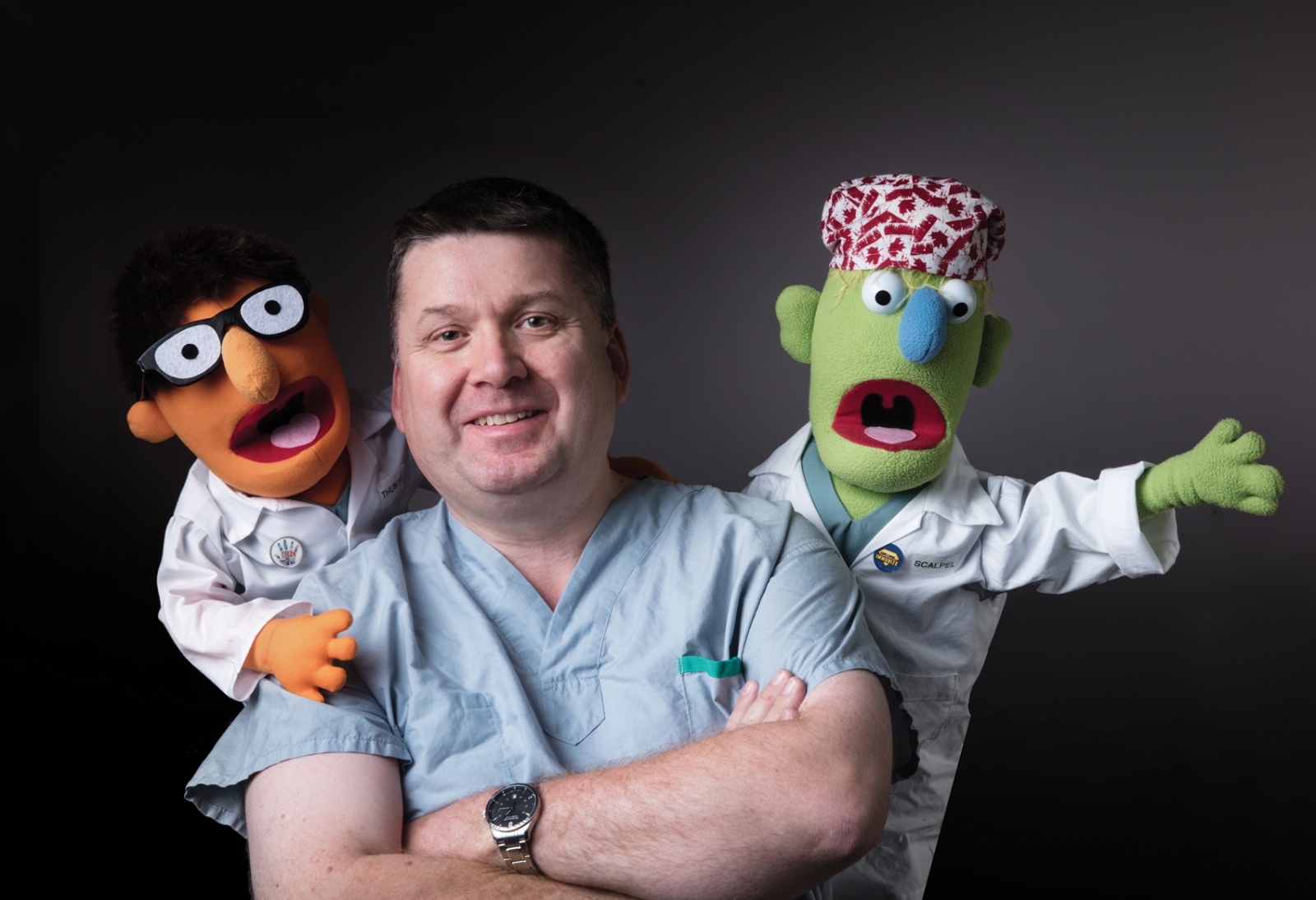Today, the whole suite of Surgery 101 products is produced out of a non-descript office, just down the hall from White’s, in the Royal Alexandra Hospital’s Community Services Centre. Inside is what you might find if you gave a six-year-old an hour alone with your credit card. The first thing you spot are the dozen Muppets, each wearing homemade surgical scrubs, piled in a corner behind a computer monitor. Along another wall are thousands of Lego pieces, many carefully organized in dozens of little drawers with labels like “O.R. Gear,” “Skateboards” and “Lightsabers.” Pull back the curtain behind the door, meanwhile, and you’ll see the Lego shooting stage (made to order by Marshall’s father), complete with a cluster of lamps aimed at a makeshift hospital food court. One surgeon is about to tuck into a pepperoni pizza. Another appears to be enjoying a quiet moment with coffee and a doughnut – deservedly so, given that these characters just dealt with an overload of clown and superhero patients in a recent video about patient handover between shifts. (“Don’t be a douchebar,” concludes the pirate mini-figure, looking into the camera. “Use SBARR.” To the medically inclined, that’s situation, background, assessment, recommendations and review.)
The podcast’s audience is nearly as surprising as its cast. A survey conducted in partnership with the U of A’s business school and digital marketers from MacEwan University found that two-thirds of Surgery 101 listeners were medical students. Approximately 30 per cent also worked in health care: doctors in training, nurses, and other allied health professionals. But the remaining five per cent? Patients, who were either about to have surgeries or were considering them. On top of its educational value, it turns out that Surgery 101 can help calm the nerves of people nervous about what their upcoming experience on the table has in store. Now, White says that sometimes he’ll even be interrupted by his real-life patients while describing their procedure. “I heard you say this already,” they tell him. “I looked you up online last night and saw you’ve done a podcast on my condition.”
After finding breakout success online, Surgery 101‘s popularity is still growing. Currently it’s most popular in the United States, with more than 1.2 million downloads to date. Canada comes second, at 500,000 total downloads. Then Singapore, at 350,000. China, Australia, Saudi Arabia and India are among the countries that round out the top 10. In all, Surgery 101 averages 1,500 to 2,500 downloads per day, which, even conservatively, translates into one download every minute.The deliveries may be different, but White still applies the same educational methods to his podcast as he does with his surgical students. In 2014, he was one of 10 university professors across Canada to be awarded a 3M national teaching fellowship. So even if you’re listening to Podcast 101 from an ocean away, you can feel like you’re right there in the room with him. “It’s exactly the same thing as we’re currently doing with a medical student,” White says. “Except instead of teaching one student at a time, you’re teaching 10,000 at a time.”
